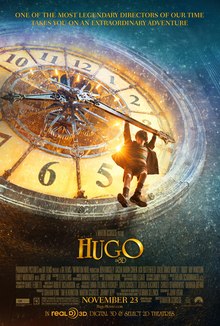A non-cheesy trage-comedy, The Descendants is one of those rare films that is mildly lying and mildly telling the truth--it does take life's tragedies with seriousness, but ends up with a childlike self-laughable behavior. Truly one of 2011's best films.
The Good
- pleasant and realistic script, serious but with a heart and candidness
- excellent performance from Clooney and everyone involved.
The Bad
- has dragging parts near end, with an unsatisfying ending
- will not feel long, but will dilly-dally on a lot of occasions
Synopsis
Matt King, father of two girls, a local Hawaii lawyer, and a failing husband, is the sole trustee of an inherited Hawaiian land, of about 25,000 acres. Having thought of no better way to resolve their problems with the rule against perpetuities, the King clan decided to sell their property to a local developer, Dolitzer for half a million dollars. During the course of the bidding, Matt's wife gets into a motorboat accident, which left her in a coma, which if she ever recovers from, will leave her in a vegetative state, leaving Matt to execute her living will of disconnecting her from the machine. On the course of accepting the bitter truth, Matt fetches her daughter from her boarding school and embarks on a journey to inform everyone about his wife's fate and dealing with his family's ancestral property.
Pleasantville
When one thinks of Hawaii, all we ever think of is parties, fun, pinacoladas, beaches, surfing, and other recreational activities. Media has done very little to expose the other side of Hawaii, that is the political dealings, the common life of the residents, and the problems that Hawaii faces, in general. Alexander Payne depicts part of that undiscussed side of Hawaii in a very lifelike light, using a realistic script that reflects American values with a Hawaiian flavor. The result is a finely-crafted mix of unexpected humor in tragic circumstances.
Surf's Up
I am not a big fan of Hawaii-based films (or TV series or TV series episodes for that matter). There is a weird feel in Hawaii being American and smack right in the middle of the Pacific. It's an uneasy mix of culture and humidity and vibrant colors that don't really go well altogether. Anything set in Hawaii makes me feel uneasy and humid and to some extent, feels corny, shallow, and predictably a surfer or beach movie. That is to say, that to me, watching The Descendants felt initially like that. But the thing with The Descendants is that it's actually a movie that normalizes Hawaii, make the beaches as commonplace and as uninteresting as a heavy traffic in New York. In a way of saying: it's a drama set in Hawaii, and not a surfer movie with some drama. Heck, even George Clooney, who is normally polished and gleaming, is disheveled and slob-looking here. That is how bigwigs in Hawaii looks like, apparently, as his character explains.
 |
| If only we can all get paid to look like slobs. |
 |
| Scene-stealing Sid played by Nick Krause |
Near the end, the story will slow down and mostly rely on visuals for the resolution. And speaking of resolution, I'm not sure I'm a big fan of the way the movie ended. Sure, that's how life is sometimes, we peek in the middle of the story and the end for us is up to how much we are allowed to peek into the lives of these characters. It's just that the ending felt kind of undone and could've been done better.
In a sense one can say that the movie was effortlessly done. There are sparks of brilliance here and there, but one may need to dig the sand for those. It's in the normalcy and how Payne managed to capture the human response to tragedy that makes this movie shine. How genuine the characters are and how relatable they are. There was very little cheesiness too as there was grit, but those worked exactly for the better.
My verdict:



